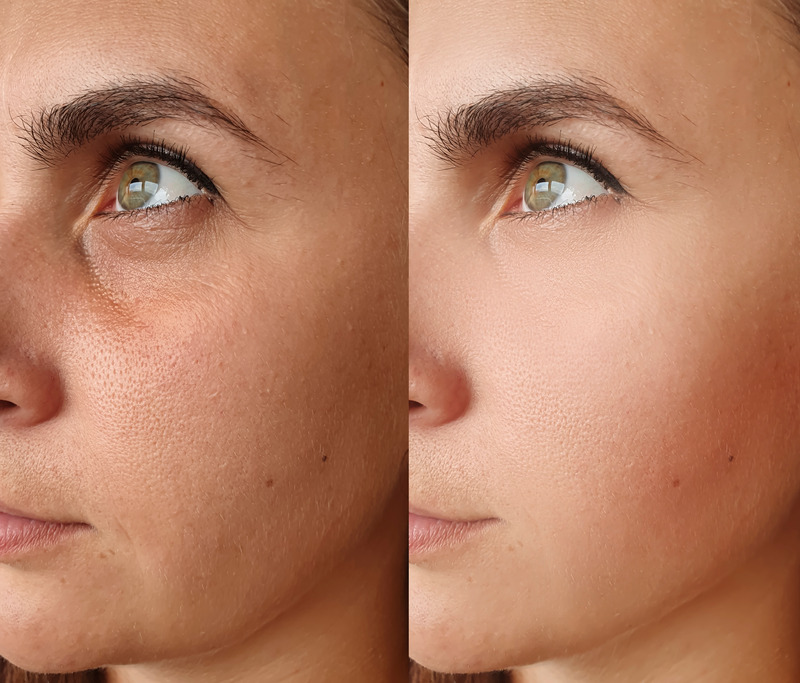Polynucleotides
With 41 years of scientific research and development, 36 years of medical application and 1.8 million uses, Polynucleotides are the gold standard in true skin regeneration. Utilising filtered, ultra purified and sterilised natural DNA fractions- from fragments of fish DNA extracted from salmon or trout sperm; this injectable serum offers many skin benefits and incredible, visible results.
Polynucleotides have a history of being used in general medicine before their introduction to the world of medical aesthetics, such as in the management of chronic wounds
The Science Behind Polynucleotides
Cells house the body’s deoxyribonucleic acid (DNA) and ribonucleic acid (RNA), which are responsible for the storage and reading of instructions needed for an organism to develop, survive and reproduce. Both are linear polymers, consisting of sugars, phosphates and bases, with DNA consisting of two strands and RNA having one strand. Both are made up of subunits called nucleotides. Therefore, polynucleotides are linear polymers whose molecule is composed of many nucleotide units (Mackenzie, 2022).
In summary, polynucleotides are more like food or medicine for the cells, to make them produce collagen and elastin in a more meaningful way,

Fibroblasts and Polynucleotides
Fibroblasts are a type of cell in connective tissues that produce collagen and help maintain the structural framework of tissues. Simply, well-functioning fibroblasts are responsible for a youthful appearance. The function of our fibroblasts declines with age leading to a decrease in collagen.
This is where polynucleotides come in. When injected into the skin, they boost collagen and elastin by up-regulating the fibroblast cells, as well as improving tissue regeneration and restoring skin tone and elasticity. They have an antioxidant and hydrating effect in addition to the bio-remodelling, therefore resulting in skin that looks and feels healthier.
Polynucleotides Injectables
Polynucleotides are a very versatile injectable, which can be injected effectively under the eyes, face, along the cheek bone, jaw line, neck, décolletage and even into the scalp to stimulate hair growth.
For many patients, tear trough filler is not an appropriate treatment due to skin laxity or the presence of eye bags. As a result, polynucleotides have shown to work very effectively in improving this area and is fast becoming a popular requested treatment for the eyes.
Polynucleotides initiate the body’s natural fibroblast production, resulting in:
*Increased collagen (47% in 23 days)
*A thicker, healthier epidermis (52% in 23 days).
The treatment requires two-to-three sessions depending on the patient, spaced out at intervals of 2-4 weeks. Both cannula and needle can be used to inject the product, but this will be determined at consultation.
Results can last around 6 months and improvements in the skin can be seen as quickly as after the first session.
Polynucleotides can be used as a mono treatment or in conjunction with other other treatments such as Profhilo, Ultherapy and Dermal Fillers.
The most common risks with injectable treatments such as polynucleotides include bruising and swelling.
Polynucleotides Vs Skin Boosters
Skin boosters such as the popular Profhilo, provide hydration to the skin, however, polynucleotides communicate with the cells to make them produce new collagen and elastin, making it the most effective injectable skin regenerator.
Most importantly, polynucleotides work in areas of the skin that skin boosters cannot, like under the eyes and forehead. However, both treatments can be used as a combination therapy to maximise skin results.
Pricing
Initial treatment involves 3 sessions at monthly intervals. Each session typically utilises one or two syringes depending on the size of the treatment area.
£350 per syringe